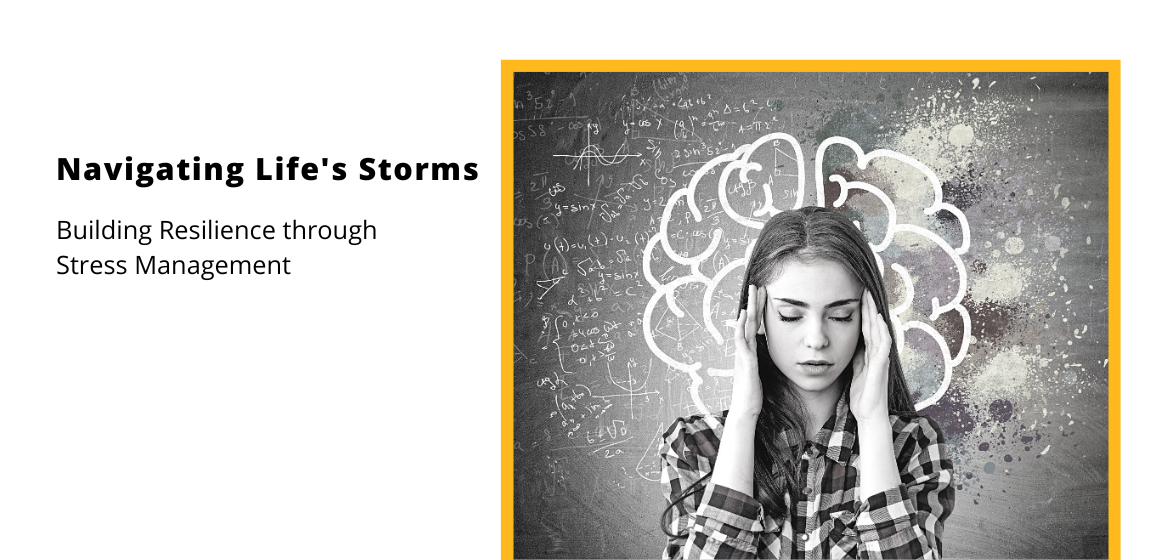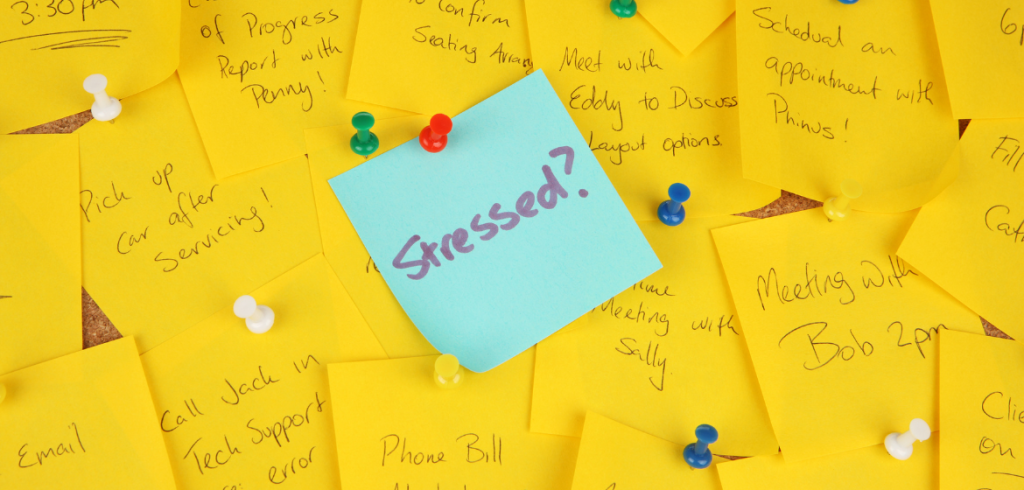
Navigating Life’s Storms: Building Resilience through Stress Management
Stress is an inevitable part of life, and we all experience it from time to time. However, excessive and chronic stress can take a toll on our mental health, leading to a range of mental health problems, including anxiety, depression, and PTSD. In this article, we’ll explore the importance of managing it to maintain good mental health.
What is Stress?
Stress is the body’s natural response to a perceived threat or challenge, and it can manifest in both physical and psychological ways. When we experience its symptoms, our bodies release hormones such as cortisol and adrenaline, which trigger the “fight or flight” response. This response is designed to help us respond to a perceived threat or danger. However, when it becomes chronic, the body’s response system can become overwhelmed, leading to a range of negative mental health outcomes.
Impact on Mental Health
Chronic stress can affect our mental health in a number of ways. Here are some of the most common ways being stressed can impact our mental health:
- Anxiety: It can lead to feelings of anxiety, which may manifest in symptoms such as racing thoughts, difficulty sleeping, and a general feeling of restlessness or unease.
- Depression: It can also contribute to feelings of depression, including sadness, hopelessness, and a lack of interest in activities that were once enjoyable.
- Post-Traumatic Stress Disorder (PTSD): Traumatic events can trigger stress and lead to the development of PTSD. Symptoms may include flashbacks, nightmares, and a general sense of fear or hypervigilance.
- Substance Abuse: Some individuals may turn to drugs or alcohol as a coping mechanism for stress, which can lead to addiction and other negative outcomes.
- Poor Sleep: Chronic stress can make it difficult to fall asleep and stay asleep, leading to fatigue, irritability, and other negative outcomes.
Techniques if You’re Stressed for Good Mental Health
Being able to manage stress is essential for maintaining good mental health. Here are some effective strategies:
- Identify the sources of stress in your life: This may include work, relationships, or financial difficulties.
- Develop healthy coping strategies: Healthy coping strategies can include physical exercise, relaxation techniques, or engaging in enjoyable activities.
- Get enough sleep: Lack of sleep can increase stress levels, so it’s important to make sure you’re getting enough sleep each night.
- Eat a healthy diet: Eating a healthy diet can help to reduce levels and promote overall health.
- Exercise regularly: Regular exercise is also useful for promoting overall health.
- Manage your time effectively: Effective time management can help to reduce stress levels by allowing you to prioritise your tasks and avoid feeling overwhelmed.
- Practice relaxation techniques: Relaxation techniques, such as deep breathing, meditation, and yoga, can be really beneficial and promote relaxation.
- Learn to say no: Learning to say no can be an effective way to reduce stress levels and avoid feeling overwhelmed.
- Seek support: It’s important to seek support when you’re feeling stressed. This may include talking to a trusted friend or family member, seeking professional counseling, or joining a support group.
- Take breaks: Taking breaks throughout the day can help not only this but also increase productivity.
In conclusion, managing stress is essential for promoting good mental health. It can lead to a range of negative mental health outcomes, including anxiety, depression, and PTSD. By identifying the sources in your life and developing healthy coping strategies, you can reduce stress levels and promote relaxation. Remember to prioritize self-care, including getting enough sleep, eating a healthy diet, and engaging in.
Why not check out our B.A. (Hons) in Counselling & Psychotherapy if you want to develop skills in this area.


























